★★★
“Putting the ‘arts’ in martial arts.”
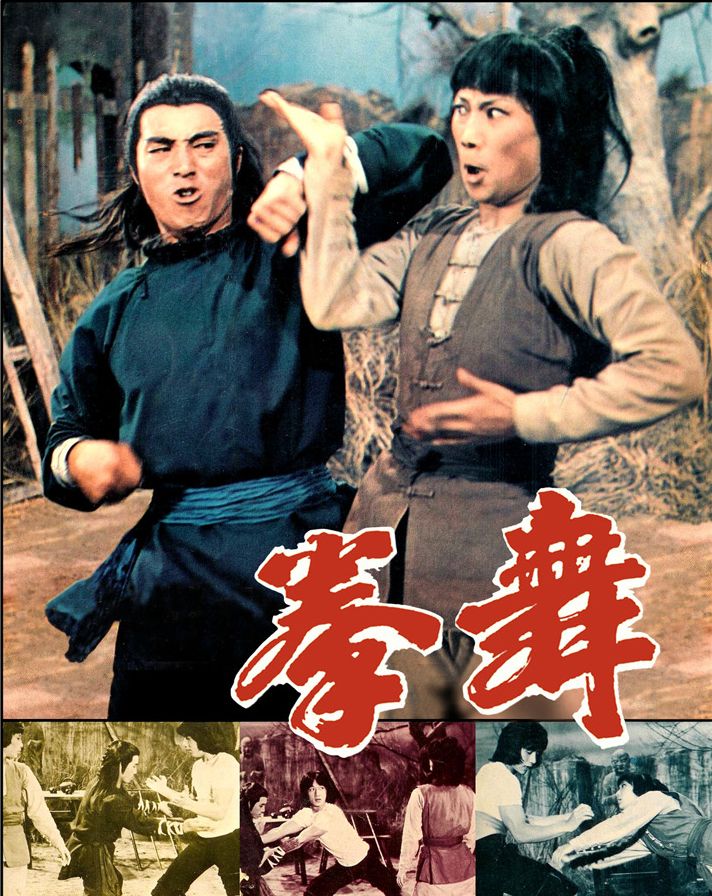 In the seventies, Angela Mao was the queen of Hong Kong cinema, occupying much the same position as Pam Grier in the blaxploitation films of the decade. Probably best known in the West for her role as Bruce Lee’s sister in Enter the Dragon (for which she was paid the princely sum of $100!), she had much meatier roles in a slew of films. This is my first exposure to her work, albeit in a print which has seen better… well, never mind days, I’m thinking better decades. It was dubbed and had subtitles, though the English track often matched the English subs more in spirit than anything else. And it wasn’t even ranked in her top 25 by IMDB rating. But, whaddya know, it actually wasn’t too bad.
In the seventies, Angela Mao was the queen of Hong Kong cinema, occupying much the same position as Pam Grier in the blaxploitation films of the decade. Probably best known in the West for her role as Bruce Lee’s sister in Enter the Dragon (for which she was paid the princely sum of $100!), she had much meatier roles in a slew of films. This is my first exposure to her work, albeit in a print which has seen better… well, never mind days, I’m thinking better decades. It was dubbed and had subtitles, though the English track often matched the English subs more in spirit than anything else. And it wasn’t even ranked in her top 25 by IMDB rating. But, whaddya know, it actually wasn’t too bad.
She plays Fei Fei, a nomadic orphan who comes across two fighting masters, that have been battling for years, without being able to decide who is better. She offers them a solution: they can both train her, and she’ll then go off and fight people – whoever’s training is most useful, is clearly superior. [This kind of thing only makes sense in a kung-fu movie. Fortunately, that’s exactly what this is.] In her first encounter, she sees off members of the Bird Gang, rescuing a member of the Five Styles School, which leads her to join the latter group. However, the rest of the Bird Gang continue their mission to wipe out their rivals, with Fei Fei the sole survivor. She returns to her original teachers to learn more and, after picking up a sixth style from a surprising location, is ready to take on Bird Gang leader, Mu Fa Shan, and his “Upside-down Horse” style.
Early on, I was ready to write this off, because Fei Fei’s fighting skills are second-rate at best. However, as things progressed, I realized that was actually the point: she progresses over the course of the film from being an enthusiastic amateur, through study and training, to someone who can credibly take on a top fighter. Her character may not have much of a story arc: instead, it’s her kung-fu that does. By the time of the final battle – which lasts about 15 minutes – she’s graceful and fluid, filmed by Lu in lengthy shots which do Mao justice. Now, it’s still a style of cinema very different to modern action films; but if you can accept the difference (which I’ll admit, takes getting used too, because it’s relatively slow and far more obviously choreographed), you’ll be fine. I kept being reminded of Fred Astaire and Ginger Rogers – and that might give you a clue as to the source of the sixth style… Oh, never mind: the title gives it away. It probably helps that stunt co-ordinator on this was Chen Yuan-lung – whom you might know a bit better as Jackie Chan.
It does suffer too much from the perpetual bane of the genre – too many comedic elements, and a resulting horrid unevenness of tone: the revenge motif which is crucial to the plot never comes over as having any emotional punch, not least because the members of the Five Styles clan bite the bullet before Fei Fei has apparently done more than be introduced to them. But Mao has enough charisma and presence to stop you, just this side of throwing things through your TV. If this is one of her minor works, I’m looking forward to the better ones.
Dir: Chuan Lu
Star: Angela Mao, Shih Tien, Shiao Bou-Lo, Chin Pey





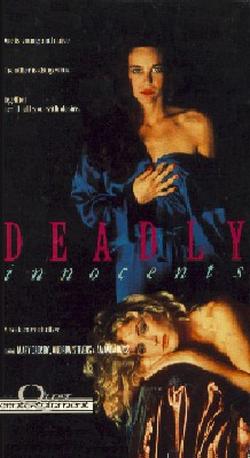
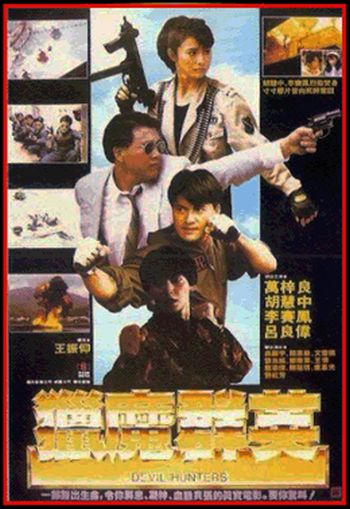
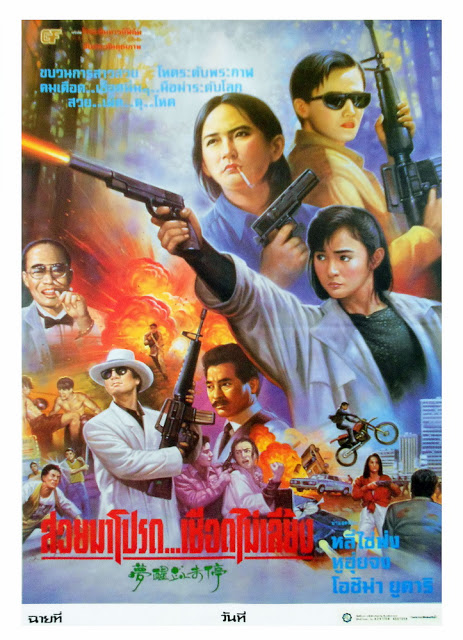
 Great concept: Lilith, Adam’s first wife, condemned to immortality, is now an amnesiac in a minimum-wage job. But when a demon threatens to unleash a plague of biblical proportions on the Earth, she has to be shown her true nature and convinced to hunt down the enemy. Unfortunately, almost every aspect, from exposition through characters to the action and CGI-heavy effects, are awful. Not just bad:
Great concept: Lilith, Adam’s first wife, condemned to immortality, is now an amnesiac in a minimum-wage job. But when a demon threatens to unleash a plague of biblical proportions on the Earth, she has to be shown her true nature and convinced to hunt down the enemy. Unfortunately, almost every aspect, from exposition through characters to the action and CGI-heavy effects, are awful. Not just bad: 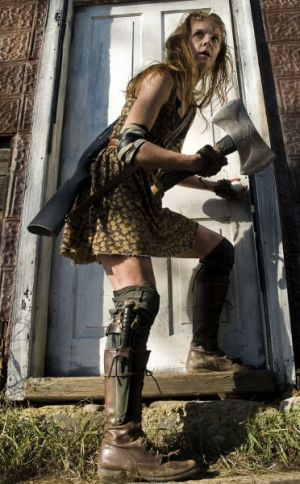 There are times when not saying too much can work for a film; Night of the Living Dead is the classic example, and it works, because you don’t
There are times when not saying too much can work for a film; Night of the Living Dead is the classic example, and it works, because you don’t 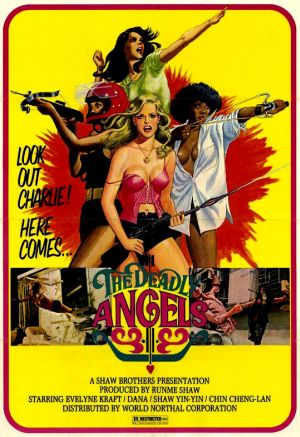 Inspired though the alternate titling of The Bod Squad might be, the original title likely gives a better idea of the inspiration for this 1977 Shaw Brothers flick: think Charlie’s rather than deadly. Three women, from Korea, Hong Kong and Japan, under the orders of
Inspired though the alternate titling of The Bod Squad might be, the original title likely gives a better idea of the inspiration for this 1977 Shaw Brothers flick: think Charlie’s rather than deadly. Three women, from Korea, Hong Kong and Japan, under the orders of  This was my first true vintage “pinky violence” movie, though I had bumped against some fringe entries in the genre before e.g. Female Convict Scorpion: Jailhouse 41, which I enjoyed and really must get round to reviewing for here some time. This one…not so much. It focuses on Rika (Oshida), who gets out of reform school, and gets a job as a ‘companion’ at a bar, where most of the girls have a similarly troubled background. The local Yakuza boss is sniffing around, and his path crosses Rika’s after she (semi-unwittingly) helps a colleague steal some drugs from them. As a result, the house mother/bar owner, is on the hook for three million yen, plus interest.
This was my first true vintage “pinky violence” movie, though I had bumped against some fringe entries in the genre before e.g. Female Convict Scorpion: Jailhouse 41, which I enjoyed and really must get round to reviewing for here some time. This one…not so much. It focuses on Rika (Oshida), who gets out of reform school, and gets a job as a ‘companion’ at a bar, where most of the girls have a similarly troubled background. The local Yakuza boss is sniffing around, and his path crosses Rika’s after she (semi-unwittingly) helps a colleague steal some drugs from them. As a result, the house mother/bar owner, is on the hook for three million yen, plus interest. When Rika (Oshida) gets out of reform school, she goes to visit her friend Midori (Katayama), and gets a job working in the garage belonging to Midori’s father Muraki (Ban), even though Midori is estranged from him – except when she needs money to pay off her boyfriend’s gambling debts to the local Yakuza under Boss Ohya (Nobuo Kaneko). Another friend of Rika’s is working in an “art studio”, doing nude modelling to support her sick husband, and still others are hostesses at the Ginza Girls cabaret, a dance-hall which Ohya’s gang are also extorting for protection money. After Muraki has to take a loan using the garage as collateral to pay Ohya, Rika tries to offer herself as an alternative to the boss. This goes about as well as you’d expect, though there’s a genuinely cool twist in which we find someone isn’t quite who we seem. There’s a tragic fatality, which sets the scene for all the girls to get together and take on Ohya’s gang.
When Rika (Oshida) gets out of reform school, she goes to visit her friend Midori (Katayama), and gets a job working in the garage belonging to Midori’s father Muraki (Ban), even though Midori is estranged from him – except when she needs money to pay off her boyfriend’s gambling debts to the local Yakuza under Boss Ohya (Nobuo Kaneko). Another friend of Rika’s is working in an “art studio”, doing nude modelling to support her sick husband, and still others are hostesses at the Ginza Girls cabaret, a dance-hall which Ohya’s gang are also extorting for protection money. After Muraki has to take a loan using the garage as collateral to pay Ohya, Rika tries to offer herself as an alternative to the boss. This goes about as well as you’d expect, though there’s a genuinely cool twist in which we find someone isn’t quite who we seem. There’s a tragic fatality, which sets the scene for all the girls to get together and take on Ohya’s gang. Misaki (Hoshino) is in prison for stabbing a policeman to death, but is taken from her jail to a remote island. There, she joins the rest of the hand-picked prisoners, who are there to be trained by a mysterious government organization, and moulded into operatives who can be used to protect national security. Most of the inmates just want to make things easy, sleeping with the guards in exchange for privileges, but Misaki is made of tougher stuff, and won’t buckle down to the authorities. While she begins plotting how to escape the island, she needs to overcome a number of problems, not least having no idea about where it is, and whether the small boat they stumble across will be capable of getting them to any other land.
Misaki (Hoshino) is in prison for stabbing a policeman to death, but is taken from her jail to a remote island. There, she joins the rest of the hand-picked prisoners, who are there to be trained by a mysterious government organization, and moulded into operatives who can be used to protect national security. Most of the inmates just want to make things easy, sleeping with the guards in exchange for privileges, but Misaki is made of tougher stuff, and won’t buckle down to the authorities. While she begins plotting how to escape the island, she needs to overcome a number of problems, not least having no idea about where it is, and whether the small boat they stumble across will be capable of getting them to any other land.